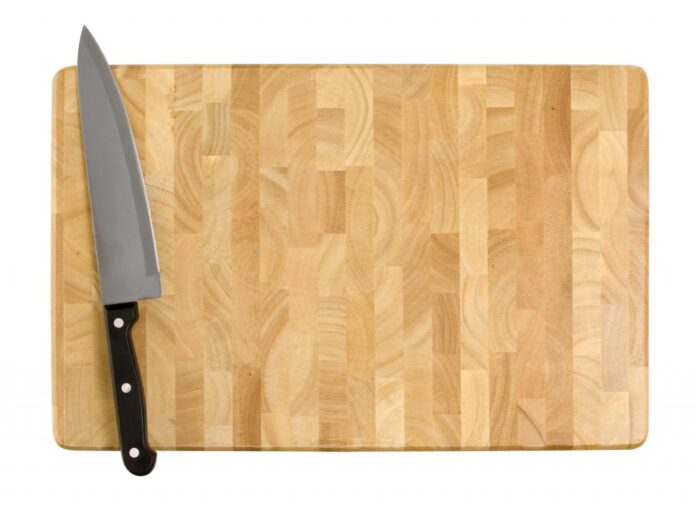Cutting boards are an essential tool in any kitchen, but their importance often goes unnoticed. While it may seem like a straightforward kitchen tool, improper use of cutting boards can lead to health hazards and kitchen accidents. When it comes to cutting board safety, it’s essential to know the facts and take necessary precautions. This is especially important for beginners who are just starting to learn their way around the kitchen.
In this beginner’s guide to restore cutting board safety, we’ll cover everything you need to know to ensure safety and hygiene in your kitchen. We’ll discuss the different types of cutting boards, including wood, plastic, and bamboo, and the best practices for using and maintaining each one. We’ll also delve into the importance of proper cleaning and sanitation, including the dos and don’ts of cleaning cutting boards. Additionally, we’ll touch on the hazards of cross-contamination and the importance of avoiding it in the kitchen.
At the end of this guide, you’ll have a solid understanding of cutting
1. Choose the right cutting board.
Cutting Board Safety: A Beginner’s Guide emphasizes the importance of proper handling and maintenance of cutting boards to ensure food safety. As the first line of defense against contamination, choosing the right cutting board is crucial. When selecting a cutting board, consider the material and its durability. Plastic and wooden cutting boards are the most common types available in the market. While plastic cutting boards are inexpensive and easy to clean, they are prone to knife gouges that can harbor bacteria. On the other hand, wooden cutting boards are more durable, but they require regular maintenance to prevent moisture absorption that can result in warping and cracking. Choose a cutting board based on your personal preference and cooking style, but prioritize hygiene and food safety. Remember to always clean and sanitize your cutting board after use to prevent cross-contamination.
2. Keep your cutting board clean.
Keeping your cutting board clean is an essential part of safe food preparation. Bacteria can easily grow on cutting boards, especially if they are not properly cleaned and sanitized. To ensure that your food is safe to eat, it is important to clean your cutting board after each use. Use hot, soapy water to wash your cutting board and scrub any grooves or cracks with a brush to remove any debris. Rinse your cutting board thoroughly and sanitize it by using a solution of 1 tablespoon of unscented, liquid chlorine bleach per gallon of water. Allow the solution to sit on the surface for a few minutes before rinsing it off. Additionally, consider using separate cutting boards for raw meat, poultry, and fish to avoid cross-contamination. By keeping your cutting board clean, you can help prevent the spread of harmful bacteria and ensure that your food is safe to eat.
3. Avoid cross-contamination.
Cross-contamination is a major concern when it comes to food safety. In order to prevent the spread of harmful bacteria, it is important to avoid cross-contamination on your cutting boards. This can be achieved by using separate cutting boards for different types of food. For example, use one cutting board for raw meats and another for fruits and vegetables. It is also important to clean your cutting board thoroughly after each use. Use hot, soapy water to wash the board and then rinse it well with clean water. Additionally, you can sanitize your cutting board by wiping it down with a solution of one tablespoon of bleach per gallon of water. By following these simple guidelines, you can help prevent the spread of harmful bacteria and keep your food safe to eat.
4. Safe knife handling techniques.
Safe knife handling techniques are essential for anyone who wants to work with knives in the kitchen. Proper handling can help reduce the risk of injury, as well as increase your speed and efficiency. The first step in safe knife handling is to make sure your knife is sharp. A dull knife can slip and cause injury, so it is important to keep your knives properly sharpened. Additionally, it is important to always use the right knife for the task at hand. Using the wrong knife can make the task more difficult and increase the risk of injury. Finally, it is important to always keep your knives clean and dry, and to store them in a safe place when not in use. By following these safe knife handling techniques, you can ensure that you are working safely and efficiently in the kitchen.
5. Proper storage and maintenance.
Proper storage and maintenance of cutting boards is crucial to ensure their longevity and safety. After each use, cutting boards should be thoroughly cleaned with hot, soapy water and dried completely before being stored. It is recommended to store cutting boards in a dry, well-ventilated area to prevent the growth of bacteria. Wooden cutting boards should be oiled regularly to prevent drying and cracking, while plastic cutting boards should be replaced periodically to avoid deep grooves that can harbor bacteria. It is also important to inspect cutting boards regularly for signs of wear and tear, such as deep scratches or cracks, and to replace them as needed. By following these simple storage and maintenance practices, you can help to ensure the safety and effectiveness of your cutting boards for years to come.
Read More – Does A Dehumidifier Use A Lot Of Electricity?
In conclusion, cutting board safety is a significant aspect of food preparation, and it’s essential to follow the necessary hygiene practices. As a beginner, it’s vital to understand the different types of cutting boards and their pros and cons to choose the best one for your kitchen. Proper cleaning and maintenance of your cutting board can prevent contamination and prolong its lifespan. By adhering to the safety tips outlined in this guide, you can ensure that your kitchen remains a clean and hygienic environment where you can prepare healthy and delicious meals for yourself and your loved ones.








